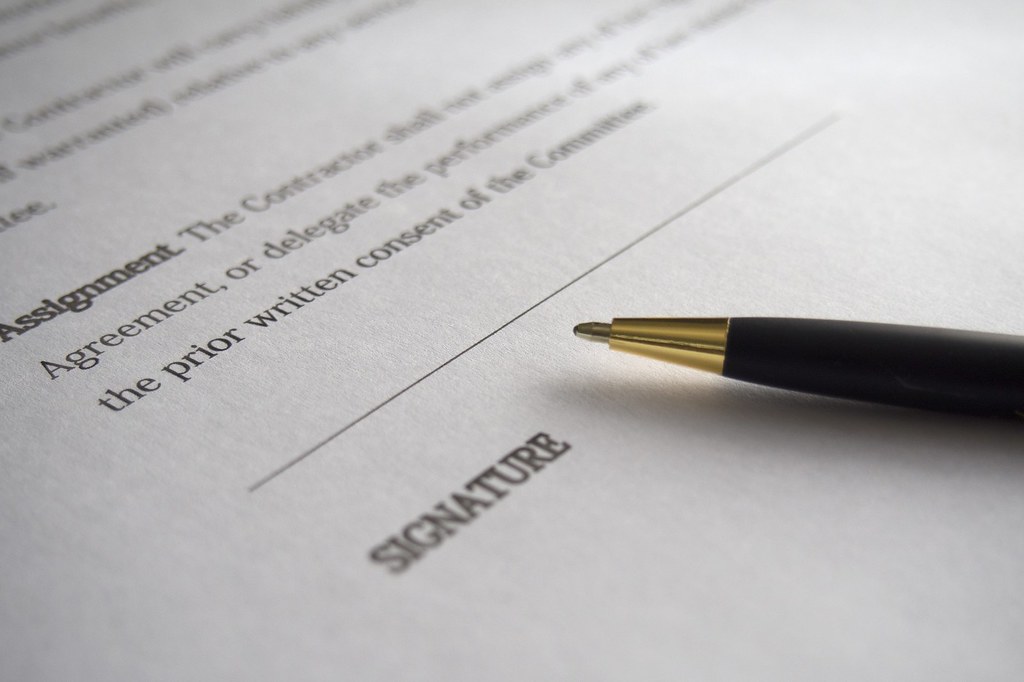On August 31st, President Trump revealed that he is currently “suing various people for violating their confidentiality agreements.” This kind of behavior from the President is unremarkable because it has happens so often. In the highest profile case, President Trump had Stormy Daniels, a woman with whom he was having an adulterous affair, sign a non-disclosure agreement, promising that she would not speak about the nature of their relationship.
Non-disclosure and confidentiality agreements are common. Employees and members of various organizations are often expected to sign them. One major concern about these kinds of agreements is that they make the moral dimensions of the making and keeping of promises seem as black and white as the writing on the page. Careful reflection on these matters makes it clear that this is not so.
There are some morally defensible reasons for the use of confidentiality agreements. If an employee works in research and development, an employer might have genuine concerns about intellectual theft—an employee could take the ideas developed by one business and bring them to another. Confidentiality agreements may also be important in cases in which employees work in defense and security. Revealing security secrets could threaten many people’s lives. There is also, within limits, some reason to think it is important for members of an organization to be able to have conversations with one another under the assumption that they can speak freely without fear that what they are saying will be reported outside of the group.
There are also many reasons to be quite skeptical about the morality of confidentiality agreements. In practice, it may well be the case that almost all such agreements are coercive. People must make money in order to pay their bills and stay alive, and often signing a confidentiality agreement is a condition of employment. Even in conditions in which employment is not at stake, those who are in a position to sign are often in a vulnerable, subordinate position, which limits the extent to which they behave autonomously when they sign. Promises are not binding if they are coerced.
Moreover, in order for a promise to be binding, at least some degree of informed consent must exist. Morally defensible promises are entered into in good faith. At the point at which they are made, both parties must trust that the other is not omitting important information from the agreement that might change the willingness to sign the document. If it becomes clear that the nature of the relationship is not what it originally appeared to be, that impacts the degree to which the person that signed it is morally obligated to follow it.
The existence of a confidentiality agreement may be morally relevant to the evaluation of what should be done in any particular case, but it is not morally dispositive. For example, the fact that a person signed an agreement provides them, on the face of it (if the decision was un-coerced), with some reason for compliance. Depending on the circumstances of the case, however, it may not provide them with an all things considered reason for compliance. Other moral considerations might easily and often outweigh the obligation to comply with a confidentiality agreement. A person might come to realize that the values of the institution or individual involved are not commensurate with their own values and dedication to upright moral character. The promises a person makes in a confidentiality agreement may turn out, in the fullness of time, to be inconsistent with other important commitments they have made. Or it may be the case that the harms being caused by the institution or individual are so severe that speaking out becomes obligatory, even if that requires violating a confidentiality agreement.
Under certain conditions, signing one of these agreements makes the person who signed it vulnerable to lawsuits if they violate it. This isn’t a moral fact; it’s a legal fact. Often, lawsuits against people who have violated confidentiality agreements add insult to injury, especially if the violation was a form of whistleblowing.
These agreements may also lead to a diminished sense of personal responsibility, at least in cases in which neither security nor research and development are involved. If you think that it would be bad for you if others find out the things say or do, perhaps you should put a little more care into what you say and do. For example, President Trump’s personal assistant, Madeleine Westerhout tendered her resignation after revealing to a reporter that the president doesn’t like to have pictures taken with his daughter Tiffany because he perceives her as overweight. The president tweeted that Westerhout “has a fully enforceable confidentiality agreement.” We can’t confirm or disconfirm whether what Westerhout said was true. If it is true, then perhaps the problem isn’t the violation of confidentiality; perhaps it is criticizing your own daughter’s body in front of your subordinate employees. Confidentiality agreements often create hotbeds of abusive and otherwise unethical behavior. It is allowed to go on unchecked because people are scared to speak up out of fear of being sued.
One of the most significant problems with confidentiality agreements is that they encourage the confusion of ethics with compliance. It is possible, and even common, to be very well-versed in exactly what constitutes compliance for a given organization, but to know little to nothing about ethics. Compliance masquerading as ethics substitutes a shallow proceduralism in the place of substantive moral reflection. After all, rules shouldn’t be followed if the rules themselves are unethical.

